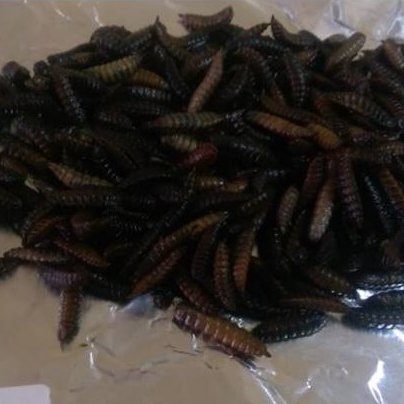
Insects are invertebrate animals characterized by an impressive nutritional profile, with high levels of protein and lipids. Their exoskeleton is characterized by the presence of chitin, a polysaccharide found to be able to regulate the immune response in several animal species. Insects have also shown lower gas emissions and significantly higher feed conversion than conventional animals. However, their main aspect is the ability to grow on waste and by-product, converting the side stream into high-value products and playing a primary role in the circular economy.
The Insect class includes a wide range of species but, due to their peculiar properties, black soldier fly (Hermetia illucens) raised interest in waste conversion and animal nutrition. It is an insect belonging to the Diptera order and characterized by 6 larval stages and a development time of approximately 1 month, resulting in a brown-black prepupae. Prepupae phase is the stage usually used for animal feeding.
Rearing of Black Soldier Fly is conducted in a climate chamber at 27°C, 70% of relative humidity and 12 hours of light. Adult flies are kept in wire-framed polyethylene cages, while larvae are raised on open boxes, filled by feeding substrate.



